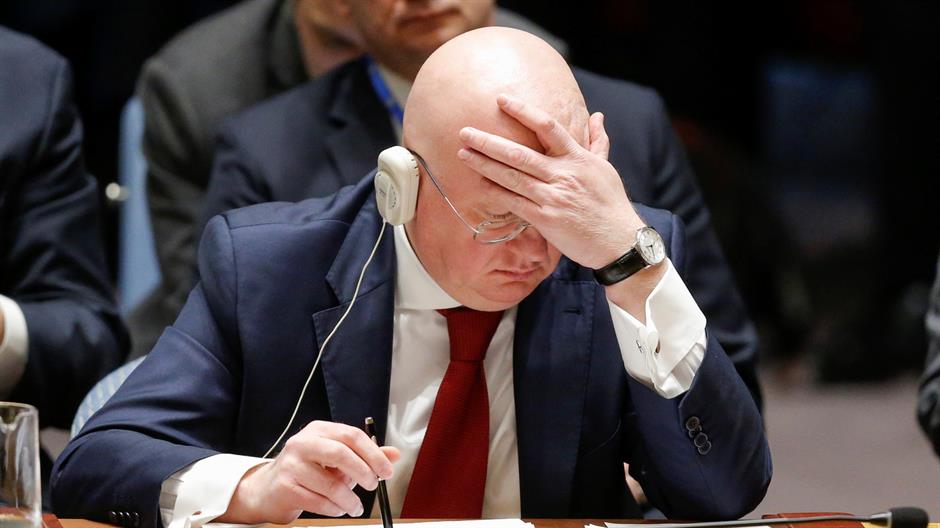
The US, German, UK and French representatives at UN Security Council's informal session called 'Arria-Formula' condemned, on Tuesday, Bosnian Serb leader Milorad Dodik's address as well as Russian Ambassador at the UN Vasily Nebenzya, who hosted the meeting of Bosnia's top political leaders.
Noting that Dodik's address was directed solely against the international community's High Representative Valentin Inzko in charge of overseeing the civilian implementation of the Dayton Peace Agreement which ended 1992-1995 was in Bosnia, Deputy German Ambassador Gunter Sautter thanked Inzko for his work in preserving peace in the country:
“We continue to support your work. We continue to support the work of the Constitutional Court of Bosnia and Herzegovina and its foreign judges, believing their experience is key in establishing the judiciary in accordance with the Dayton Peace Agreement. The future of Bosnia and Herzegovina is its path towards EU accession,” Sautter said.
“We're sorry that 25 years after the war, the country remains deeply divided along ethnic lines and because of the divisive rhetoric making reconciliation in Bosnia difficult. We believe that [the country's] political leaders should set reconciliation as a priority,” he added.
The “Arria-Formula” meeting at the UN Security Council was intended as an informal meeting of Bosnia's political, leaders with the UN Security Council on the occasion of the 25th anniversary of the Dayton Agreement. The Russian Ambassador invited the leaders of the Croat Democratic Union (HDZ BiH) Dragan Covic – who is also the Bosnian Croat leader, Alliance of Independent Social Democrats' (SNSD) leader Milorad Dodik – the Bosnian Serb leader, and Party of Democratic Action's (SDA) and Bosniak leader Bakir Izetbegovic to the session, which Covic and Dodik accepted but Izetbegovic declined.
The Bosniak leader declined the invitation, saying it circumvents Bosnia's state institution in favour of its informal ethnic leaders.
Deputy US Ambassador at the UN Richard Mills said his country has given Bosnia roughly $2 billion in aid over the past 25 years.
“The High Representative in Bosnia is necessary in the sense of preserving peace and bringing difficult decisions. We strongly support the existence of that institution and I think we should reconsider Dodik's claim that there are five against two votes in favour of Inzko's departure from the country,” he said.
"Despite great progress, That's been made, we've heard of some problems. Hostilities have persisted and they are manifested in ethno-nationalist zero-sum politics. The leaders of Bosnia and Herzegovina have a responsibility to work on mutual respect, promotion and protection of human rights, improving governance, increasing accountability and combating corruption,” Mills noted.
The representative of Great Britain in the UN, Sonia Farrey, stated in her speech that she supports Valentin Inzko adding that Russian Ambassador Nebenzia should have called Bosnia's Presidency members instead of Dodik and Covic and that she believes that such an attack on Valentin Inzko would not happen. Farrey said she did not support the glorification of war criminals in Bosnia.
Bosnian Croat Presidency Member Zeljko Komsic also commented on the speeches of HDZ BiH leader Dragan Covic and the country's Presidency Chairman Milorad Dodik before the United Nations Security Council, stating that "Dodik and Covic humiliated themselves in front of the entire international community."
"I was glad to see such clear support of the international community for the civic idea of Bosnia and Herzegovina, but I was also ashamed of the image of Bosnia which Dodik and Covic portrayed tonight," Komsic said in his comment.
Kakvo je tvoje mišljenje o ovome?
Učestvuj u diskusiji ili pročitaj komentare





 Srbija
Srbija
 Hrvatska
Hrvatska
 Slovenija
Slovenija







